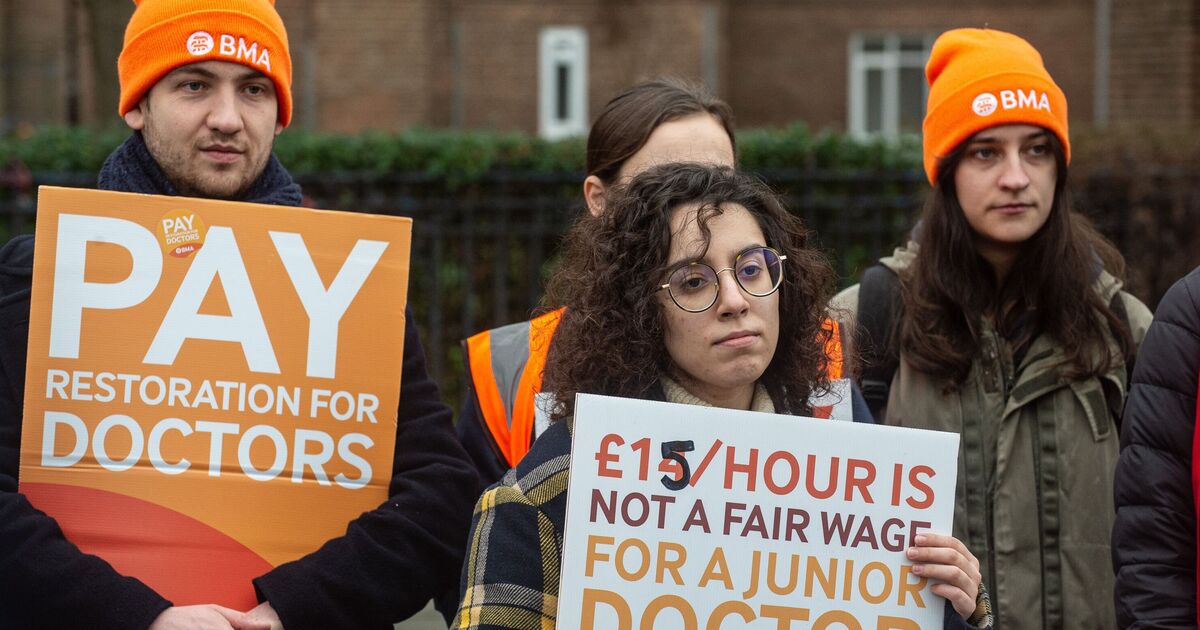The NHS has been plagued by strike disruption on more than one day in every 10 for the last year – a total of 1,056 hours, analysis reveals.
Junior doctors in England are due to walk out again from 7am on Saturday until midnight on Wednesday.
By the end of that period, hospital doctors will have taken 44 days of industrial action, or 12 percent of the year, NHS England said.
Health chiefs are also concerned about high bed occupancy. There were 97,400 patients on wards in England last week compared with 95,000 at the same time last year.
Professor Sir Stephen Powis, NHS national medical director, said: “It’s not possible to have one in every 10 days affected by strikes for over a year without it having a huge impact on services, patients, their families, and staff.
READ MORE: Junior doctors’ strikes result in delays to more than 7,000 cancer operations
“Coupled with today’s figures which show bed capacity is constrained, with more patients in hospital than this time last year – and thousands of patients in hospital with flu, norovirus and Covid-19 – alongside ongoing demand for urgent and emergency care, the enormous challenge faced by the NHS is clear.”
There were almost four times as many flu patients in hospital every day last week (2,208) than in the same week last year (638).
And there were an average of 509 patients in hospital with norovirus and 2,720 with Covid-19 each day last week.
Sir Stephen added: “Colleagues across the country have worked incredibly hard to ensure urgent and life-saving care has continued during more than a year of strike action, while also delivering progress on our recovery plans.
“But the NHS is under huge strain trying to mitigate the impact of these latest strikes during one of the most difficult times of the year.
“It remains vital that people who need care come forward and get it in the usual way – using 999 and A&E in life-threatening emergencies and 111 for everything else.”
Junior doctors in England are striking over demands for their pay to be restored to 2008 levels. The British Medical Association says their pay has been cut by more than a quarter since then.
NHS Providers warned that every round of strikes sent “shockwaves through the NHS, impacting patients and staff with little time to recover in between”.
The group’s chief executive, Sir Julian Hartley, said more than 1.4 million appointments in hospital, mental health and community services had been delayed due to walk-outs.
He added: “The scale and duration will have long-lasting ramifications.
“No one in pain or distress should have to wait a second longer than they need to, given conditions could worsen.”
Sir Julian added the strikes meant that clearing backlogs was “a near impossible task”.
“Trust leaders tell us that this prolonged industrial dispute is rapidly draining staff morale, the lifeblood of the NHS,” he said.









